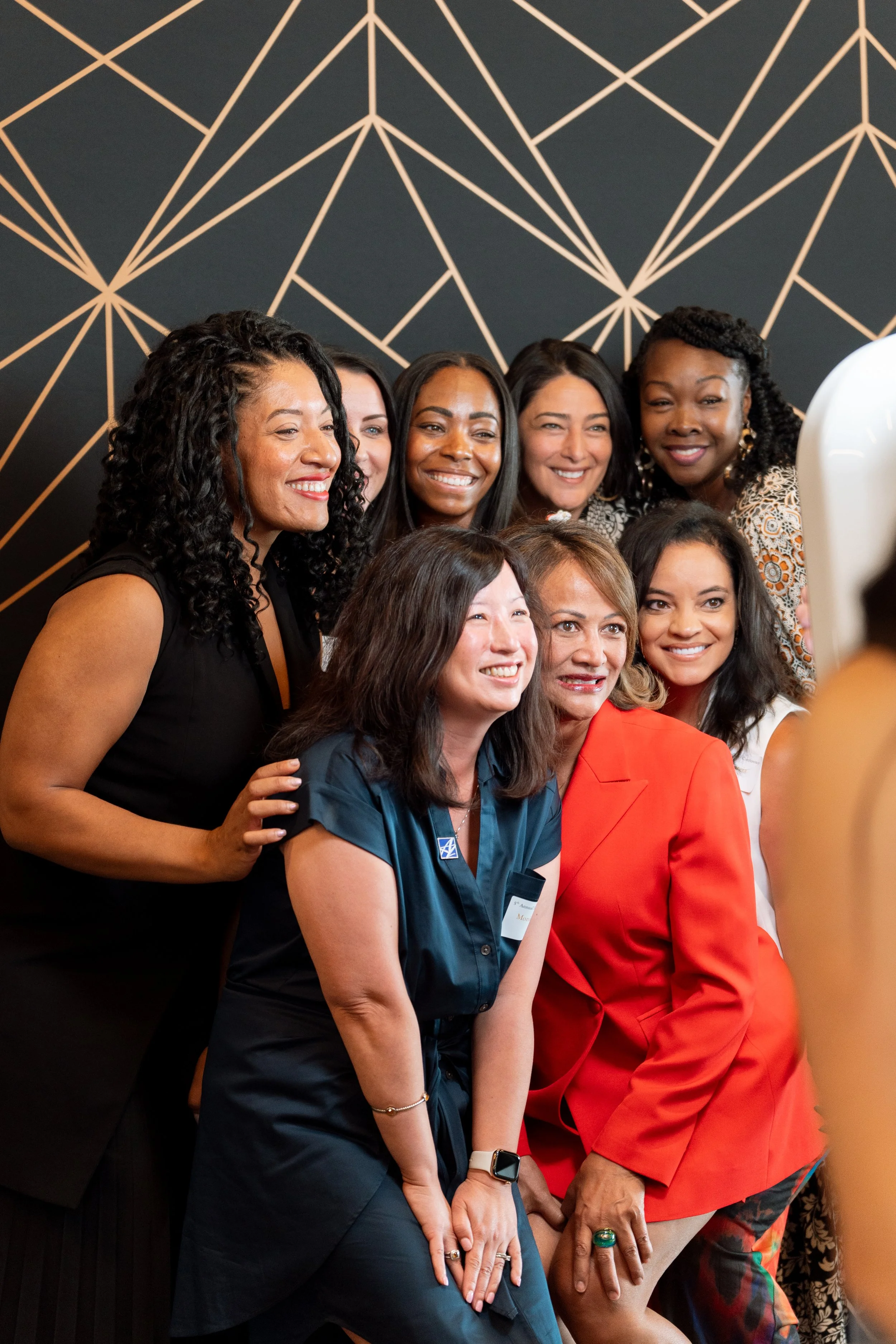Overqualified, Overworked, Underpaid: The Story of Too Many Black Women
Empow[Her] Conference 2025 | Guest Speakers & Board of Advisors
By Natalie Washington, May 13th, 2025
Every year, like clockwork, Black Women’s Equal Pay Day rolls around and every time, it lands differently. Not just as a statistic or a social media awareness post, but as a reminder of the lived realities we carry into our workplaces, communities, and homes.
Black women in the U.S. are paid just 64 cents for every dollar earned by white, non-Hispanic men (National Women’s Law Center, 2023). But when we compare our earnings to white women, who earn about 83 cents to that same dollar. The picture becomes even clearer: this is not just about gender or race. It’s about both, all at once (Pew Research Center, 2023). And it’s not just unfair, it’s generational theft. Over a 40-year career, that gap adds up to nearly $1 million in lost income (American Association of University Women, 2021).
The Real Toll: Debt, Dreams, and Daily Stress
This wage gap isn’t just about money, it’s about being asked to do more with less. It’s about dignity, about knowing you’re being undervalued the moment you walk through the door. It’s about watching your white colleagues get promoted faster, praised louder, and paid more; while you’re told to be “grateful” just to be in the room. For those of us who are Black, Indigenous, and/or LGBTQIA+, the weight is even heavier. We’re not just navigating one system, we’re moving through layers of bias. Constantly calculating the cost of speaking up or advocating for ourselves. It feels like stretching every dollar while juggling student debt, rent, caregiving, and more. It feels like delaying dreams of homeownership, skipping car repairs, or saying no to joy, not because we lack discipline, but because we’ve been systemically underpaid.
For many of us, the gap shows up long before payday. I hold three degrees, yet like so many Black women, I carry more student debt than the national average. In fact, Black women hold more student loan debt than any other group; averaging over $37,000 compared to $31,000 for white women (Urban Institute, 2022). And that’s not even counting credit cards or other personal loans we often rely on just to stay afloat. How can we build financial wealth when we’re starting in the red. Still we’re expected to pour into our families, our communities, and our workplaces?
This chronic pressure fosters financial trauma, the ongoing stress tied to money insecurity, rooted in systemic racism and exclusion. It erodes our mental health, interrupts our sleep, undermines our confidence, and limits our ability to plan. The guilt hits hard: not being able to support family or the community the way we want, or even access therapy we know we need.
And for those of us who are activists, caregivers, and mentors? That weight multiplies. We’re not just surviving. We’re organizing, educating, leading and trying to hold ourselves together in the process.
Still, We Rise and Choose Joy
And yet, we rise. Black women are still choosing joy. We are building our own tables, reclaiming our time, and defining wealth and wellness on our terms.
We are going to therapy when we can. We are resting without apology. We are dancing, eating, laughing, journaling, loving loudly and protecting our peace while building power. Because while the wage gap has taken from us financially, it can’t take our light. We are learning that wealth is more than a paycheck but that doesn’t mean we won’t demand the one we deserve.
We Deserve More, We’re Demanding More
This is more than a policy issue. It’s a wellness issue, a justice issue, and as a Black, Indigenious, LGBTQ+, Educated Woman: it’s personal.
We deserve:
Pay transparency and accountability
Promotion pathways that value leadership beyond proximity to whiteness
Freedom from tokenism and “gratitude culture” in the workplace
Equitable hiring practices that prioritize retention, not just recruitment
Living wages that reflect our labor, our expertise, and our humanity
Student debt relief that addresses the racial wealth gap and historic exclusion
So the next time someone says, “It’s just a few cents,” remind them: those cents have cost us homes, health, and generational dreams.
We move with purpose, we rest with intention, and we build with love. Because Black women have always been the backbone of change now it’s time the world meets us at our worth.
Natalie Washington
References
American Association of University Women. (2021). The simple truth about the gender pay gap. https://www.aauw.org/resources/research/simple-truth/
National Women’s Law Center. (2023). The wage gap: Black women. https://nwlc.org/resource/black-women-and-the-wage-gap/
Pew Research Center. (2023). The enduring grip of the gender pay gap. https://www.pewresearch.org/social-trends/2023/03/01/the-enduring-grip-of-the-gender-pay-gap/
Urban Institute. (2022). Black women carry the heaviest student loan debt burden. https://www.urban.org/urban-wire/black-women-carry-heaviest-student-loan-debt-burden


